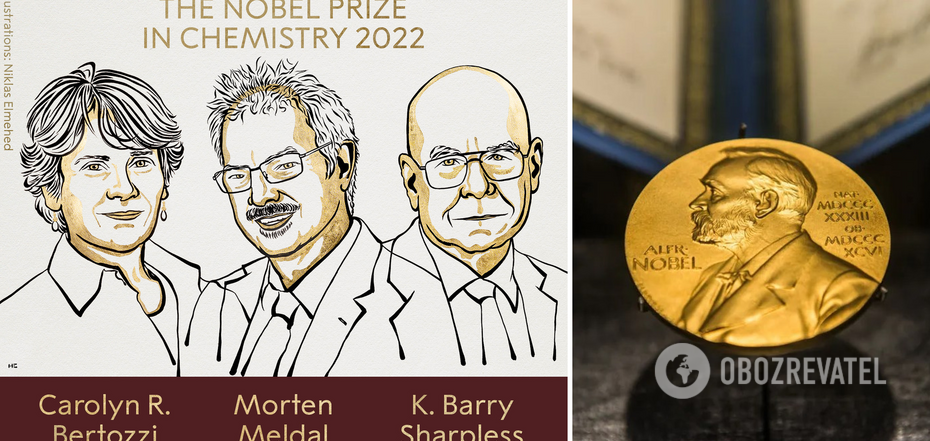News
Nobel Prize in Chemistry awarded for click chemistry that helps fight cancer
The Nobel Prize in Chemistry for 2022 was awarded for the development of click chemistry and bioorthogonal chemistry, which, in particular, help treat cancer. It was shared by Carolyn Bertozzi (USA), Morten Meldahl (Denmark) and Barry Sharpless (USA).
The winners of the most prestigious scientific award were announced during a special press conference in Stockholm, which was broadcast on the Nobel Committee's website. They will share $900,000, which is the amount of the prize money this year.
According to the Nobel Committee, the discoveries have greatly simplified complex chemical processes for scientists. "Barry Sharpless and Morten Meldahl laid the foundation for a functional form of chemistry, click chemistry, in which molecular building blocks are quickly and efficiently combined with each other. Carolyn Bertozzi took click chemistry to a new level and began to use it in living organisms," reads the press release on the award.
The tools developed by the laureates, in particular, help to reproduce natural molecules with medicinal properties. Barry Sharpless, who received the second Nobel Prize in Chemistry (the first was in 2001), developed the concept of click chemistry, where reactions are fast and eliminate unwanted byproducts. The bonding of substances occurs as in construction bricks, which are joined with a characteristic click. Hence the name click chemistry, from the English click.
After that, Sharpless and Meldahl independently developed copper-catalyzed azide-alkyne cycloaddition, a chemical reaction used in the development of pharmaceuticals, DNA mapping, and the creation of new materials.
Carolyn Bertozzi, in turn, has developed click reactions that work inside living organisms. Her bioorthogonal reactions proceed without disturbing normal cell chemistry. They are used to study cells and track biological processes. By using bioorthogonal reactions, scientists have improved the targeting of drugs to cancerous tumors - this method is now in clinical trials.
Thus, the announcement of the laureates in literature, which will take place on October 6, and in peace, on October 7, is still to come. And on Monday, October 10, the winners of a special award in the field of economics will be announced.
As OBOZREVATEL previously reported, this week the names of the laureates in medicine and physics have already been announced. Swedish biologist Svante Paabo received the medical award for his research on the DNA of extinct human species. In the field of physics, the committee recognized Frenchman Alain Aspe, American John Clauser, and Austrian Anton Zeilinger, who made a huge contribution to the development of quantum information transmission through their research on photon entanglement.
Last year, the award in chemistry was shared by Benjamin List (Germany) and David McMillan (USA), who developed new methods for the synthesis of molecules.



























